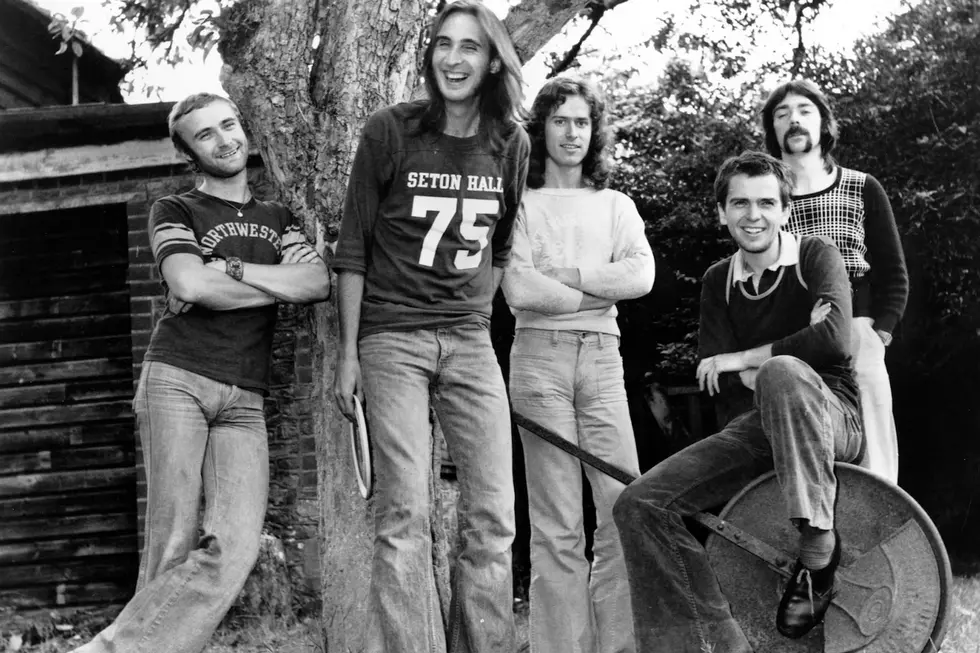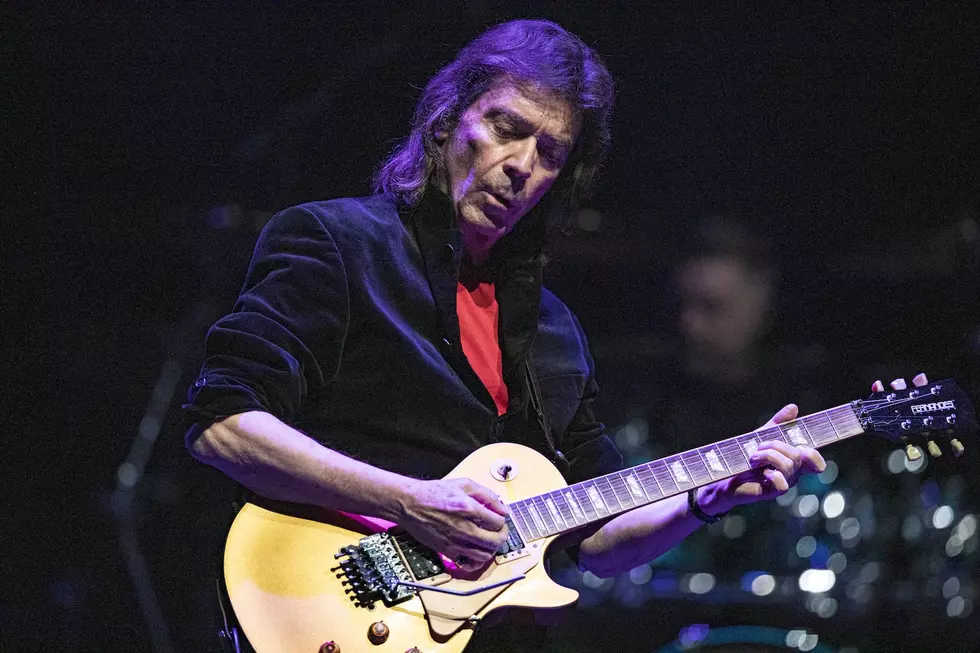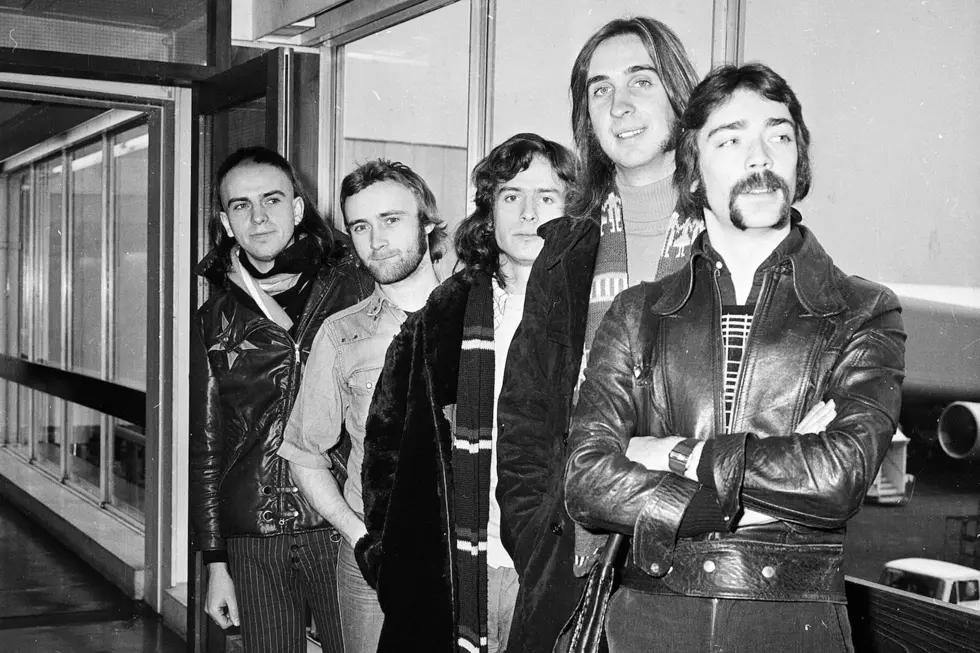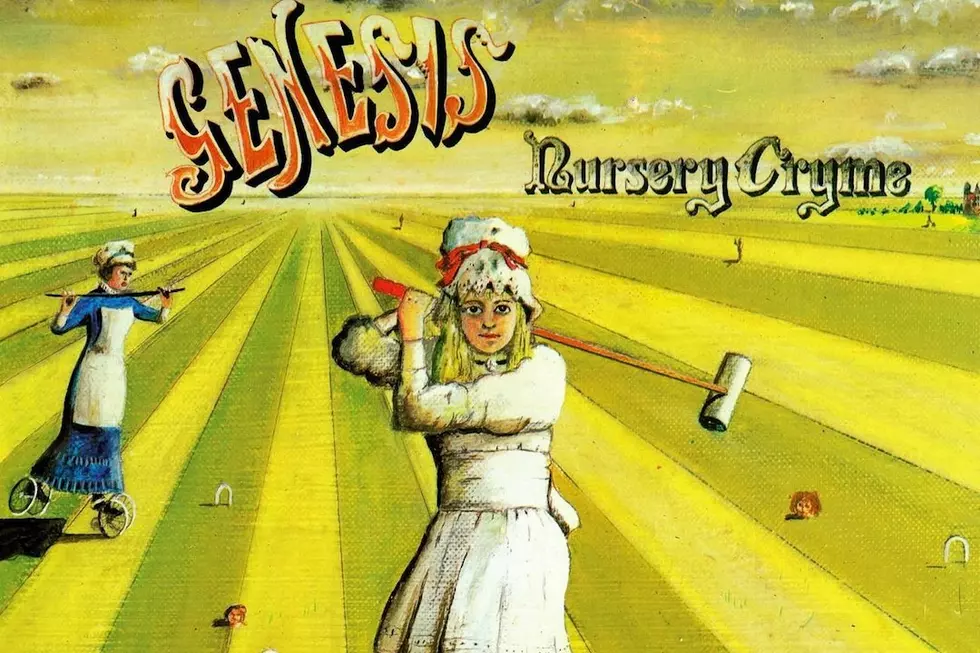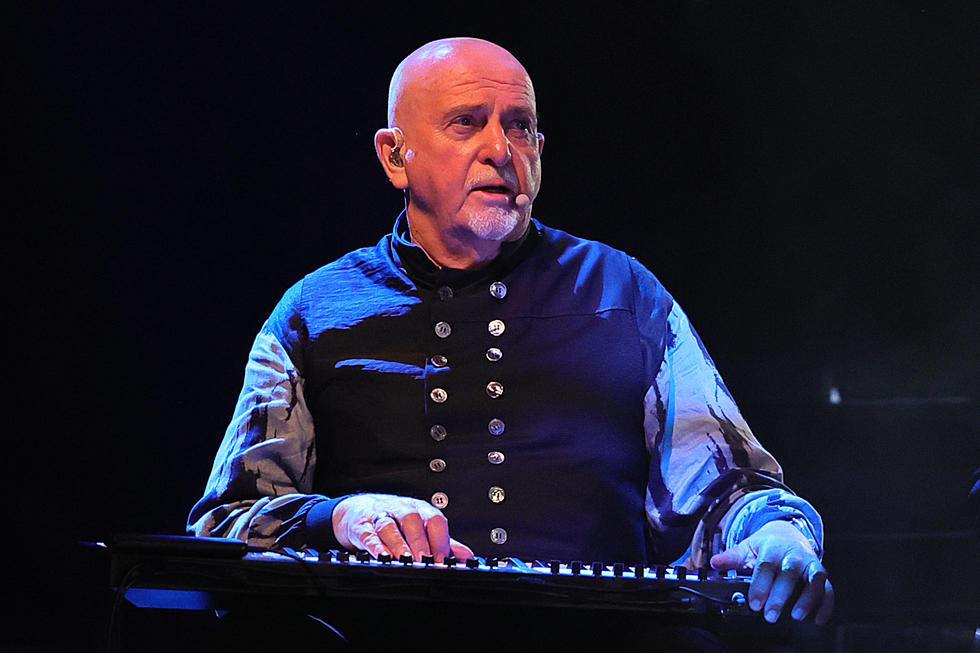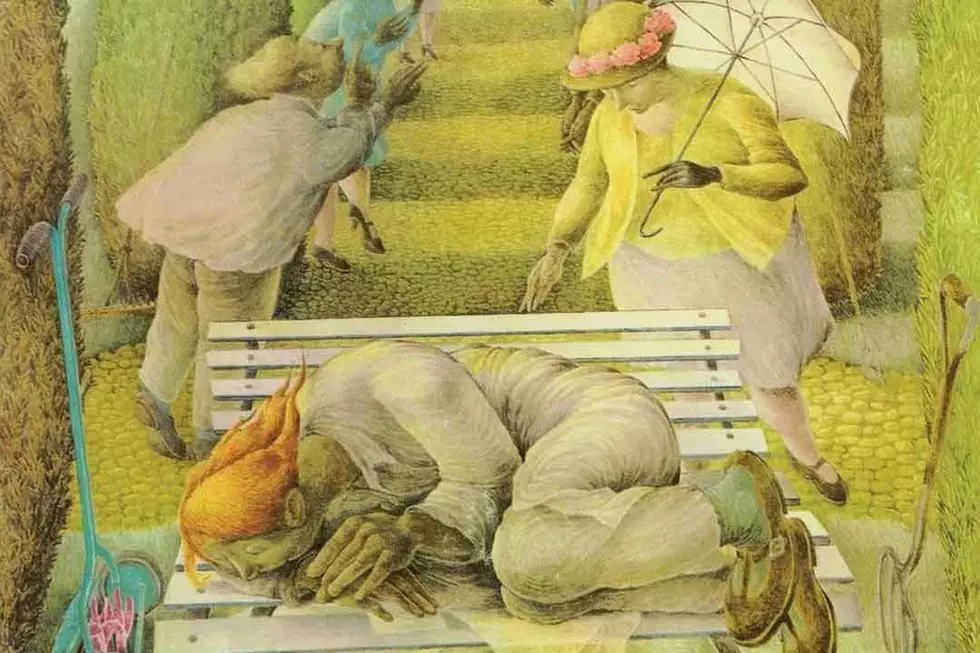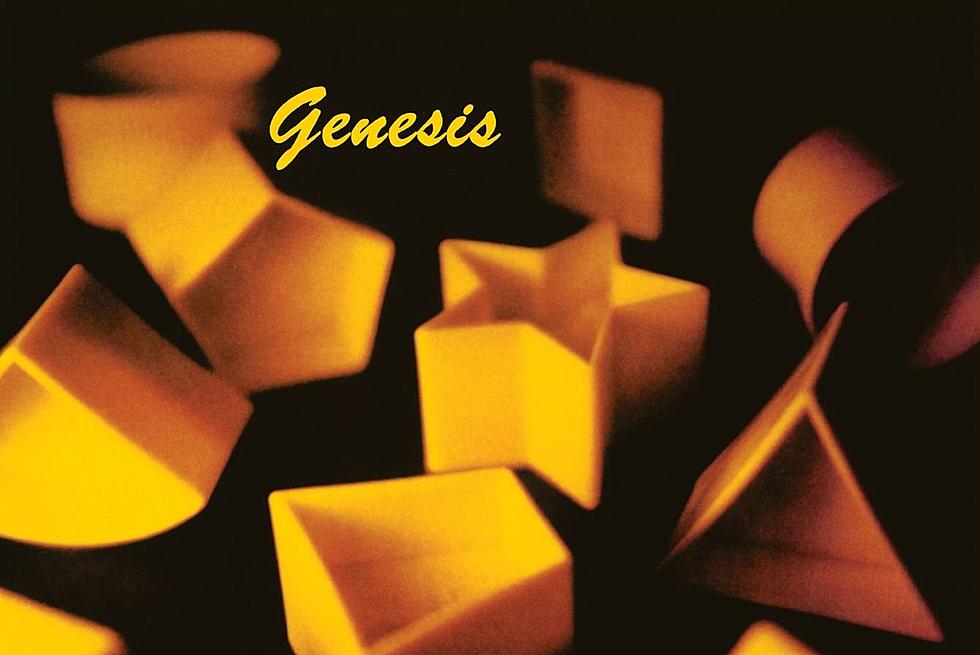Steve Hackett on Genesis’ Legacy, New Music and More: Exclusive Interview
With the release of The Night Siren, former Genesis guitarist Steve Hackett has unveiled his latest creative exploration.
As usual, he worked across many borders in the process of creating new music. “You could say I’m a musical mongrel, if you like. I love music from everywhere,” he tells Ultimate Classic Rock. “I love working with so many people throughout the globe. It’s been incredibly fulfilling, doing this and making friends everywhere and, if not bringing back the friends, bringing back the instruments from these places."
Hackett has toured extensively in recent years and already has an initial run of U.S. dates under his belt for the new album. The current tour showcases not only material from The Night Siren, but also a healthy helping of Genesis classics and rarities. This time around, he’s putting the spotlight on Wind & Wuthering (which recently celebrated its 40th anniversary), his final album with Genesis, performing a selection of songs from the record-- including some which were never performed live in the group’s heyday.
We spoke with Hackett to discuss the album and tour, as well as some choice Genesis memories.
This new album sounds really incredible. You can tell right from the moment that you queue up “Behind the Smoke” that you’re going to go on quite a journey. That song works pretty excellently as an album opener on this new record.
I was very proud of it when we did it. There’s something compelling about it, even though I’m part of it. I wrote it with my wife, Jo, who came up with the lyrical ideas of the first bits. The lyrics are her input. It says everything, a war-torn situation, not just the parallels with present day, but also the parallels with ancestry in the late 1800s. The family that managed to survive pogroms in Poland and made their way to Portugal and Calzeskis and then made it to England [where] they got asylum. They became Davis. My mother’s maiden name was Davis, and I remember my great-grandmother very well. I remember the things they were talking about, the terrible times that their families walked away from, war-torn pogroms.
This record has a distinctly international feel to it. You’ve always loved exploring different sounds and instruments. You’ve spoken to this a little bit, but for this record, it does seem like there were a good amount of world thoughts on your mind that kind of helped to inspire where you took things not only topically, but also perhaps musically. Can you talk about where that came in? How did that inspire the overall concept of this record as a whole and feed into the direction of your songwriting for this record?
When you read of the number of people who have lost their lives trying to escape Syria, for instance, and Jo’s family spent time in Lydia, and suddenly you’ve got these no go regions and places that have been virtually dismantled, the economies ruined, places being defoliated. It seems as if the concept [that] war is never the answer, it seems as if powerful governments never seem to look to history to see what might happen. It’s often power without responsibility. It’s easy to go in and destroy somewhere. But to not have a plan, what are you going to do with all of those displaced people? What are you going to do with the refugees? What are you going to round them up and cart them off or are we going to say that the nations that have the wealth have more than enough to go around? Countries that are doing very well economically ... It seems to me that there’s a responsibility, and I’m appalled with the way that Britain has been behaving recently. The threat to peace and prosperity of Europe, it’s not the world that I subscribed to. It’s not what I signed up to. I’ve been a European for many years now, living and working in Europe, coming and going as freely as I wanted. What [about] all of those people that are not English, that are in this country, what is their status going to be? Throughout Europe, I’m always amazed that so many nations speak English. Are we going to say goodbye to all of that? Anyway, I’m on my soapbox about all of this stuff. I’m terrified about Brexit. I think it’s appalling. I think it’s crazy.
The things that we fought for, might just all go down the tubes. So having done an album that was well on its way to being kind of a musical United Nations, we were then appalled to find that England just wanted to cast off from the rest of Europe and go sailing out into the Atlantic. I guess the lies of right-wing politics has appalled many. We don’t know where the world is going. There’s a lemming-like urge towards heading back to the caves. I was making an album that was flying in the face of all of that quite naturally, music that has no regard or respect for borders.
For you as a musician, it must be cool for you to be able to show what you can achieve with unity on this record.
Unity is the main thing. There’s a very old word that I saw in the I Ching many years ago, and it was the concept of fellowship. And I thought that was a really marvelous thing. Musicians do this naturally. I mean, they have to -- they have to get on with each other. There’s a fellowship -- and I’m not talking about the Fellowship of the Rings here, but the idea of extended family.
What can you tell us about “Other Side of the Wall”?
My wife and I were exploring an English garden, a very large one on the borders of Wimbledon in London. We came upon a walled up gateway. We basically wrote the lyrics of the tune based on the idea of a couple in the present day who were arguably a reincarnation of a previous couple that had existed in an earlier time. It’s a surreal mix of various elements. It’s highly fanciful, it’s very romantic and it’s sonically something that’s built up pretty much with a few acoustic instruments and voice. It’s not really an electric instrument extravaganza, but it becomes big. I was trying to explore ballad singing on it, tracking myself up as many times as I could face to make it of relevance. But basically it’s a gentle love song, backed by orchestral instruments.
Listen to Steve Hackett's 'Anything but Love'
On “Anything but Love,”I like the lyric and the thought, “You’ll never get away with anything but love.”
Yeah, it was a lyrical idea I’d had kicking around for sometime. I had that idea, and it’s one of at least two love-gone-wrong-type songs [on the album]. That’s the contradiction, isn’t it, the fact that at the end of the day, he who thinks he’s getting away with something, actually has got another thought coming.
It takes a pretty cool trip when you get into the guitar solo on that song. Where were you in the process of making that song when you decided to drop in that guitar solo and take it in that direction? Because it really takes off at that point and is a pronounced shift, but I love the way it all develops. The afterburner kicks in and kind of stays in gear for the remainder of the song.
That guitar solo was the first thing I recorded for this album. I had an idea that I wanted to play in the style of the first Cream album. Do you remember the first Cream album? There were a couple of tracks on that which were kind of medium-paced tunes where the guitar solos were quite legato, slow and often ridden with feedback. I sometimes had the impression during that psychedelic era where psychedelia met blues that guitarists, in some ways, the guitar was their spaceship. We floated off on that ride with people such as Eric Clapton, Jimi Hendrix, Jeff Beck and many others who were extremely more brilliant at that time than I was in my early days of struggling with electric guitar. I thought there’s something about the Fernandes guitar that I’ve got, I’ve got a number of them and they have sustainer pickups, and it means that you’ve got feedback from the guitar itself with no [change] of volume. You don’t have to turn up loud and threaten your hearing or anyone else’s when you’re playing that. Also, I’ve got this notion that whenever I make an album, sometimes, I’m so involved writing the song and putting everything together for the song. It’s like baking a cake.
Really, if there’s guitar work on it and a solo in particular, I think that’s a bit like the icing on the cake, and that’s the thing that makes all of the difference, very often. But sometimes you spend so much time baking the cake you can really be quite tired by the time the icing comes along or you haven’t really got time to do the icing properly. And I thought, Well, let me start out with the icing. Why don’t we do that? Why don’t we do what motivated the young guitarist to practice away in his bedroom for hours and hours and hours, for years and years -- and still do. So it was something I felt might appeal to my 17-year-old self, revisiting my younger self in the style of the stuff that was going down at that time that I was hugely impressed with that I wanted to be able to do. All of that stuff that came out of a Les Paul and Marshall stacks and all of that kind of stuff. So it’s an homage to an earlier era. But we start off the track with flamenco [guitar], which is a style I’ve been experimenting with in recent times. It goes through changes, the love gone wrong aspect and it becomes something else. It’s quite a basic tune, to be honest, but it goes through a number of changes.
What sort of challenges would you say you faced trying to figure out how to reproduce things for the tour?
We’re doing three numbers from the album. And they do present challenges -- logistically, it’s difficult. For instance, we’re doing “El Nino,” and that’s really an orchestra meets a tribe of drums meets a rock band, and we’ve got five people playing on that. It means that live we’ve got two drummers going at it with Gary [O’Toole] and Rob [Townsend]. It sounds mighty. Roger [King] has amassed this massive keyboard sound that uses multiple samples and he’s playing it all live, but I can’t believe it’s all coming from the fingertips of one human being, and then there’s a rock band that goes with it as well. So it’s hugely challenging, and yet I can’t wait to play it for the first time. It’s going to be really good. It’s an extraordinary track. I think it’s going to become a favorite.
Some of the stuff, instrumentally, listening to “Behind the Smoke,” made me think of your work with the late Chris Squire on the Squackett album. And it makes me sad that you’re not going to get a chance to continue that collaboration. You must have really enjoyed the opportunity to work with him.
I did, very much. He was a great character. I did a whole bunch of things with Chris, and I always had the feeling that we would always do stuff in the future. He was incredibly enthusiastic about the music that he was involved with. Whether he was working with Yes or whether he was working with anyone, frankly, there was a joy in it. Even if it was difficult music, it was always music with a smile. I loved him dearly. I was sorry to see him go, but I’m sure he’s out there in spirit somewhere. I swear we’ve been channeling him on this record. I’d been thinking, “Chris, would you have liked this? What would you have done?” I knew exactly what he liked and I wanted to do a record that pleased him. So we have that aspect of things on this -- and I mean this. I had the sense of him smiling down on us when we were doing this. If it wasn’t his fingers, I’m damn sure it was a lot of his ideas and if you listen to it, you can hear them on the record.
When I listen to the instrumentation and the symphonic elements on some of this stuff, it really makes me think that it must have been quite a process recording this record.
It was. One studio these days is the size of a computer. So, often, we’re away on location recording people in a number of different places. Sometimes we just go away and we collect data and then assimilate it and sift through it and use what’s best about it. It’s been an extraordinary adventure. I wasn’t able to visit Israel and Palestine to do this, so we did file sharing with Kobi [Farhi] and Mira [‘Awad], which was extraordinary, but then there were the Hungarian sessions, the Budapest sessions and also the Sardinian sessions. It’s been extraordinary doing this album. It’s been a joy and it’s a miracle really that it sounds the way it does. It’s like shooting film in a way. We didn’t start at the beginning. The first thing I started with was a guitar solo, just to start feeling good about what noises guitars can make!
One of the elements of this tour is that you’re celebrating the 40th anniversary of the Wind & Wuthering album. What comes to mind for you when you look back at the experience of making that record with Genesis?
It was my last record with the band. But it happened to be a great record. Live, with the band, they’re doing magnificent versions of “Eleventh Earl of Mar,” “One for the Vine,” “Blood on the Rooftops,” “...In That Quiet Earth,” “Afterglow” -- all of which I think are great tunes in one way or another. We’re also doing “Inside and Out,” which should have been on the album.
You had already made your first solo album at that point and it ends up, as you said, being your final Genesis album. Going into that record, did you have a sense that it was probably going to be time for you to move on after that?
Possibly, yes. I think that I hadn’t made up my mind at that point, but I put a lot into that record. I wrote a lot for it. I played some unfamiliar instruments, which I didn’t bother to credit myself with, just in case there were political eruptions. [I was] sort of heading towards world music [with] the kalimba, autoharp, one or two other things -- not just electric guitar. I think it was a great record and a fitting one to go out on and a stepping stone to other things and working with other people who were at least as weird and wonderful.
In Phil Collins' book, he writes that he feels like you didn’t tell him you were leaving at the time, because he might have been the one person who could have persuaded you to reconsider.
I think that’s true. I loved Phil and I didn’t want him to talk me out of it, because I suspect that he and I would have continued working on for many years to come. But I think he was more broad-minded politically within the band than others. I don’t think he had a problem with me having a parallel solo career -- hell, he had his own band, you know. But that wasn’t [the same with] others who wanted to clip my wings. That made me want to fly all the more.
Phil writes in his new book about how they found your ad in Melody Maker when they were searching for a guitar player, at the top of the list listed as “An Able Accordionist.” He views it as an interesting way to put yourself at the top of the list and writes that it was enough to make Peter Gabriel want to get in touch. Whatever your motives were for wording the ad that way, it turns out that you used the right words in that moment.
Yeah, it’s funny, that’s probably an apocryphal story. I think that what I was trying to say was that I was probably the guy who probably advertised himself just as much as the able accordionist. Now, “Able Accordionist,” was the guy who was at the top of the list, because it had A, A, A. [Laughs] But I was a guitarist/writer [who] seeks respective musicians determined to strive beyond musical stagnant forms -- that was my Churchillian call to the like-minded, and I thought, “There’s got to be someone out there who is crazy and crusty enough to take me on with this.” It was throwing down the gauntlet to everybody. Pete was the one who called me up and thank God he did. It changed my life.
He also writes about The Lamb Lies Down on Broadway, calling it one of the few Genesis albums he can put on and be surprised by. Are there things like that in the catalog for you as well?
I think that because it was a double album, we had things on the extreme, such as “The Waiting Room.” I’d always wanted to get Genesis to do some atonal work. I think the recorded version is okay, but I know that it really came into its own live. I made one or two suggestions and everyone threw themselves into it live, and sometimes it was really magnificent, because it could become anything and it is possible to tear up the rule book, even Genesis were able to say goodbye to form then for a moment and just go straight for spirit. I think it did the band a lot of good. It was an album that was out of character for the band, but I think there were a lot of great things on it. But then I think that about all of the Genesis albums I was involved with. Not just because I was involved with them, but because the guys within the band came up with great ideas. I think over the years my perspective is that everybody in Genesis could write a great tune, and that’s what separated Genesis out -- they weren’t just musicians. They were able to tug at the heartstrings or write something exciting. Which means that each of those guys probably could have inhabited ten different bands in ten different genres. I think we were all pan-genre freaks in a way. We were orchestral groupies, we loved big bands, we loved ballads, we loved classical. We like romantic, we like tonal free-form jazz. All of the things that Genesis was able to at least have a go at, if not to perfect.
It has to be really interesting for you, each time you do one of these tours, digging further back into the catalog and playing some of these songs live that haven’t been played in a long time and in some cases, weren’t ever played live by Genesis.
I love doing that. My band has not played much of this stuff before. It’s a privilege, and the band likes getting it right, and sometimes if I’ve got to go out and come back in the middle of rehearsals, I find them doing stuff and I go, “My God, that sounds like the record,” or, in some cases, actually better. With the more modern noises and the sounds of just keyboard stuff alone, it’s extraordinary. It’s got all of those old sounds, but with a very diligent keyboard player or two working on that. We can more faithfully reproduce the albums, particularly the more symphonic moments.
See Phil Collins in Rock’s Craziest Conspiracy Theories
Genesis Solo Albums Ranked
More From Ultimate Classic Rock
